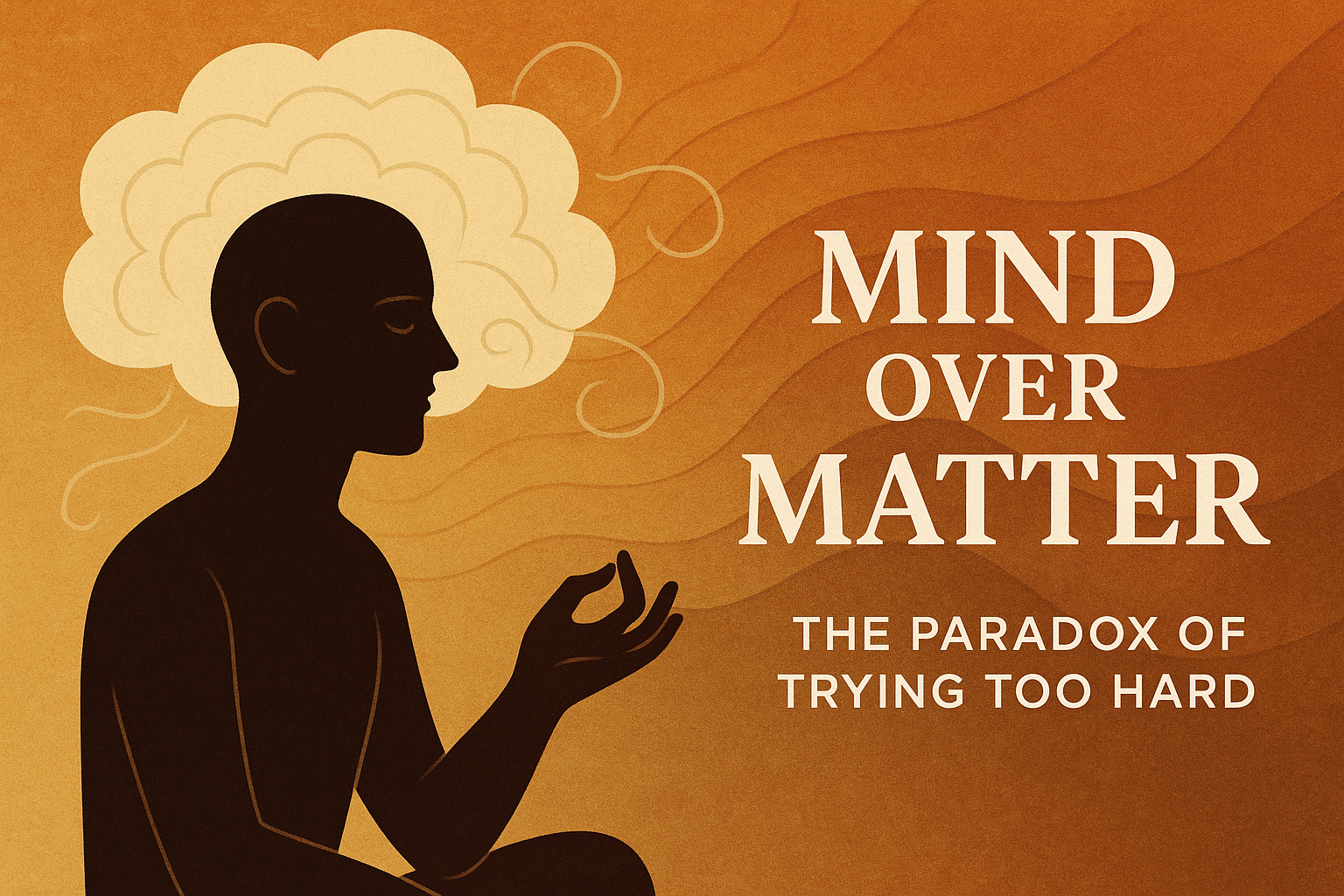Balancing the Need to Be Right with the Grace of Imperfection
Navigating Conversations with Grace: The Importance of Listening Over Winning

In a world that often prioritizes certainty and correctness, the need to be right can feel like an inherent part of our identity. Whether in personal relationships, professional settings, or even within ourselves, this need can lead to tension, defensiveness, and a reluctance to accept differing perspectives. However, when we cultivate a presence-based mindset, we can find a harmonious balance between our desire to be right and the grace that comes from embracing imperfection. This balance fosters deeper connections, enhances our self-awareness, and allows for personal growth.
Understanding the Need to Be Right
The desire to be right often stems from a need for validation and security. When we feel that our opinions or beliefs are correct, we gain a sense of control and confidence. However, this desire can become detrimental when it leads to conflict or an unwillingness to listen to others.
When we cling too tightly to the need to be right, we may find ourselves engaging in debates, becoming defensive, or shutting down conversations that could lead to deeper understanding. This rigidity can prevent us from seeing the nuances of a situation and limit our ability to connect with others.
The Grace of Presence and Imperfection
Embracing Presence: A presence-based mindset encourages us to be fully engaged in the moment, allowing us to observe our thoughts and feelings without judgment. This awareness helps us recognize when our need to be right is overshadowing our ability to connect with others.
When we cultivate presence, we create space for empathy and understanding. Instead of focusing solely on defending our point of view, we can listen to others with an open heart and mind. This shift not only fosters deeper connections but also allows us to learn from different perspectives, enriching our understanding of the world.
Accepting Imperfection: Recognizing that imperfection is a natural part of being human can help us let go of the relentless pursuit of being right. Everyone makes mistakes, and acknowledging this truth allows us to approach ourselves and others with compassion.
By accepting our imperfections, we can cultivate a sense of grace that softens our defensiveness. We become more willing to admit when we are wrong, leading to more authentic conversations and relationships. This acceptance creates an environment where growth can flourish, enabling us to learn from our experiences rather than becoming trapped in a cycle of rigidity.
Cultivating Humility
Humility plays a crucial role in balancing the need to be right with grace. When we approach conversations with humility, we recognize that others may hold different perspectives or interpretations that do not align with our own. It’s essential to understand that differing opinions do not diminish our worth or validity; instead, they add richness to our understanding of the world.
Allowing Space for Different Perspectives: When we encounter someone who holds a viewpoint contrary to our own, it can be tempting to defend our position vigorously. However, embracing humility means allowing others the space to express themselves, even if we believe they are incorrect. This approach encourages open dialogue and fosters an environment where everyone feels heard.
How to Practice:
- Listen actively and resist the urge to interrupt or counter immediately.
- Ask open-ended questions to encourage the other person to elaborate on their viewpoint.
- Remind yourself that differing opinions can coexist without the need for conflict.
Avoiding Defensiveness: Being open to differing opinions requires us to set aside our defensiveness. When we feel our beliefs are challenged, it’s natural to want to protect them. However, by recognizing that our self-worth is not contingent upon being right, we can respond with grace and understanding instead of defensiveness.
How to Practice:
- When you feel defensive, take a deep breath and remind yourself of the importance of empathy and connection.
- Approach the conversation as a learning opportunity rather than a battleground.
- Acknowledge that it’s okay for someone to hold a different perspective without it affecting your relationship or sense of self.
Finding Common Ground: Fostering humility involves seeking common ground amidst differing opinions. Instead of focusing solely on the differences, look for shared values or goals that can unite you. This approach encourages collaboration and connection, reducing the perceived threat of opposing viewpoints.
How to Practice:
- Reflect on the underlying values that connect you with others, even when you disagree.
- Highlight areas of agreement before discussing differences, creating a sense of shared purpose.
Finding Balance: Practical Strategies
Practice Active Listening: One of the most effective ways to balance the need to be right with grace is through active listening. Instead of preparing your rebuttal while someone else is speaking, focus entirely on their words and feelings. This practice fosters a sense of understanding and helps you appreciate different viewpoints.
How to Practice:
- Maintain eye contact and be fully present in the conversation.
- Reflect back what you’ve heard to ensure understanding.
- Avoid interrupting or formulating your response until the other person has finished speaking.
Shift Your Perspective: When you feel the urge to defend your position, take a moment to reflect on the underlying motivation. Are you seeking validation, or are you genuinely trying to engage in a meaningful dialogue? Shifting your perspective can help you approach conversations with greater openness and humility.
How to Practice:
- Ask yourself, “What can I learn from this person’s perspective?”
- Consider that being wrong can lead to new insights and personal growth.
Embrace Vulnerability: Allowing ourselves to be vulnerable is an essential part of finding balance. By admitting our mistakes or uncertainties, we open the door to deeper connections and authentic interactions. Vulnerability fosters trust, creating a safe space for others to share their thoughts and feelings.
How to Practice:
- Share your own experiences of imperfection with others.
- Acknowledge when you don’t have all the answers, and invite collaboration and discussion.
Cultivate Self-Compassion: When we strive for perfection, we often subject ourselves to harsh self-criticism. Practicing self-compassion allows us to treat ourselves with the same kindness we extend to others. This shift in mindset encourages acceptance of our flaws and limitations.
How to Practice:
- Speak to yourself gently and kindly, especially in moments of failure.
- Reflect on what you would say to a friend in a similar situation and apply that compassion to yourself.
The Beauty of Balance
Balancing the need to be right with the grace of presence and imperfection is a lifelong journey. By cultivating a presence-based mindset, we can foster deeper connections and enhance our personal growth. Embracing imperfection allows us to let go of the rigid constraints of being right, inviting us to engage with others authentically and compassionately.
As you navigate your relationships and experiences, remember that true wisdom often lies in openness and understanding. By prioritizing connection over correctness, you create space for meaningful dialogue, deeper learning, and personal growth. Embrace the beauty of imperfection, and watch as your relationships and self-awareness flourish.
Share









